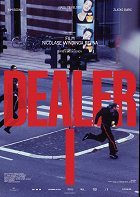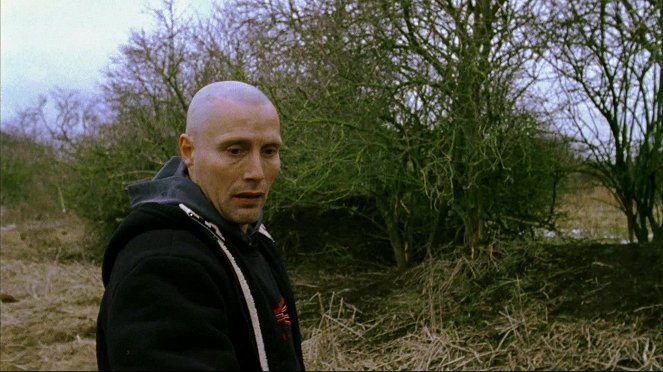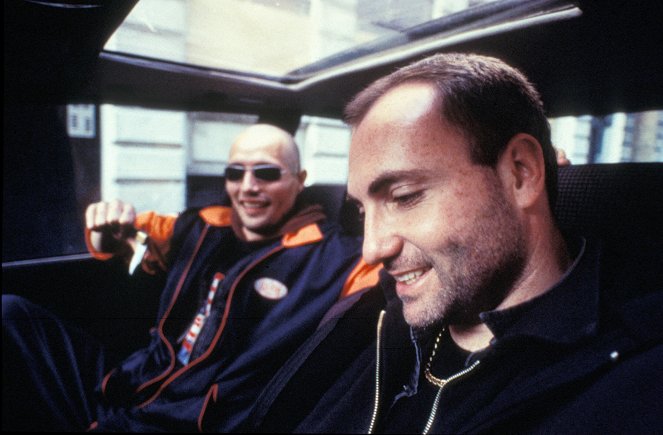Rendező:
Nicolas Winding RefnOperatőr:
Morten SøborgZeneszerző:
Peter PeterSzereplők:
Kim Bodnia, Zlatko Burić, Laura Drasbæk, Slavko Labovic, Mads Mikkelsen, Peter Andersson, Levino Jensen, Thomas Bo Larsen, Lars Bom (több)Tartalmak(1)
When his debt to the drug lord is due, dealer Frank has no money. A fatal and humiliating hunt for some cash starts and Frank is racing with a 9mm bullet right behind. (forgalmazó hivatalos szövege)
Videók (2)
Recenziók (6)
A "Dán keresztapa" nyitánya, amelytől sokat vártam, de többet kaptam. Scorsese és Leone a műfajban amerikai módon epikusak, Refn európai módon minimalista és pokolian közvetlenebb. Az első Elátkozott város remek bemelegítés egy piti gengszterről és bukásáról, a kiszámíthatatlan mellékszereplők által okozott kiszámíthatatlan események miatt. Karakterek, akik annak ellenére, hogy csak kevés lehetőségük van kamera előtt állni, olyan érdekes rendezői stilizációval rendelkeznek, hogy a rájuk való részletes összpontosítás két folytatásban minden filmrajongó végső vágya. Kötelezően megtekintendő trilógia, az európai gengszterfilmek egyik alapköve.
()
Pusher feels almost incredibly civil and authentic. The protagonist is an unlikeable stupid asshole, which makes it feel more realistic than if the criminal (a street drug dealer) was a cool and nice dude that drops one wisecrack after another, something we know from other films of the genre. Very good début.
()
Refn's debut is interesting in its depiction of how screwed the central character is and how he gradually gets into deeper and deeper shit. The stylization is mostly raw, simple, unremarkable, and feels almost documentary-like. The strong focus on the main character adds a fitting realism to the entire film. A pure counterpoint to the top Hollywood masterpieces from the mob setting, yet in its own way an original and profound insight into the Danish underworld.
()
I'm paradoxically reviewing the first part of the loose trilogy last. I saw it at the premiere and now I saved it for the end to confirm or refute my former impressions. Along with it, I actually account for the whole series and I give three stars for the overall image of the Copenhagen art gallery. Pusher does not lack energy and courage nor the effort to be authentic. The story is simple. After one botched delivery, the money and drugs are gone, and there's only an unpleasant debt with the customer, who has more than enough hands for dirty enforcement work. What brings Pusher down are typically Tarantino-like flaws, especially careless dramaturgy. The director is more focused on style and atmosphere than on storytelling. The pair of crooks drive through the streets for too long and spews out macho nonsense - I know that it's part of their character, but to this extent, it strongly smacks of self-indulgence. The behavior of the characters doesn't make sense in some cases. What in the world was the purpose of Frank's robbery with his girlfriend - at that moment, the director got him where he needed to, but it goes against the character and logic of the situation. I'm giving it three stars, but I'm not enthusiastic about it. Refn wanted to entertain and used music video elements so typical for the work of young filmmakers from the 90s. As a serious drama, it's too shallow and if I want to be entertained, Guy Ritchie doesn't play at having any deep exploration, but he entertains more effectively. I add a third star for the duo of big names in Scandinavian cinema - Kim Bodnia and Mads Mikkelsen. Coincidentally, I am currently watching the former in the series The Bridge from a few years ago, and it's an interesting comparison. Overall impression: 55%.
()
Searching for rhythm and a signature in long contact details and (apparently) partially improvised dialogues by a pair of delinquents. In the second part, when the film abandons the buddy movie model and begins to watch Frank's desperate struggle for survival, Refn's penchant for aestheticization of brutality and morally dubious characters is born in the neon light of nightclubs and bars. While at first classical red and purple lights are not used in a fundamentally symptomatic way, the magnificent final sequence gives birth to a director who uses his protagonists as projection screens of his brutal visions. A film on the edge between amateur cinema, the residual influences of Dogma 95 and the awakening visual monster.
()



Hirdetés